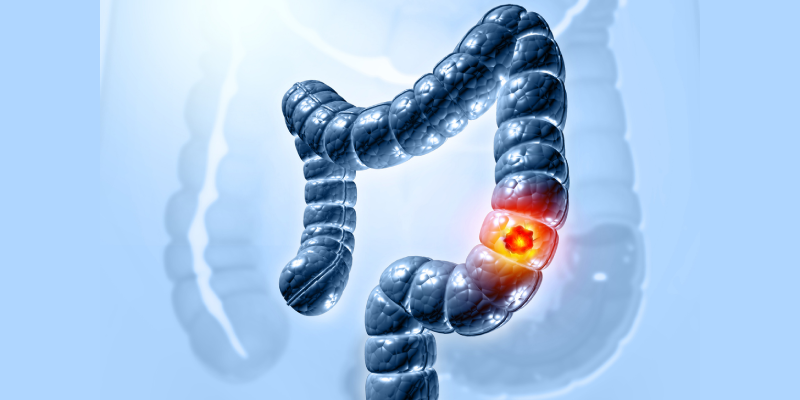
A study published in the Journal of the National Cancer Institute found that higher circulating levels of vitamin D (up to 100 nmol/L) are significantly associated with a lower risk for colorectal cancer (CRC) in women and non-significantly associated with a lower risk in men.
The researchers pooled participant-level data from 17 studies that included 5,706 patients with CRC and 7,107 control participants with a wide range of circulating 25 hydroxyvitamin D concentrations.
https://twitter.com/UICSPH_Practice/status/1007623359285399552
Compared with a lower range of sufficiency for bone health (50 to <62.5 nmol/L), deficient vitamin D (<30 nmol/L) was associated with a 31% higher CRC risk (relative risk [RR] = 1.31; 95% CI 1.05-1.62). Vitamin D above sufficiency, at levels of 75 to <87.5 and 87.5 to <100 nmol/L, was associated with a 19% (RR=0.81; 95% CI 0.67-0.99) and 27% (RR=0.73; 95% CI 0.59-0.91) lower risk, respectively.
People with higher than recommended blood levels of vitamin D have a lower risk of developing colorectal cancer, according to new research from the American Cancer Society and other health groups. https://t.co/D3nQukbZnk
— NBC News (@NBCNews) June 15, 2018
For each 25 nmol/L increment in vitamin D, CRC risk was 19% lower in women (RR=0.81; 95% CI 0.75-0.87) and 7% lower in men (RR=0.93; 95% CI 0.86-1.00).
Source: Journal of the National Cancer Institutethe National Cancer Institute
Does Vitamin D Really Protect Against Colorectal Cancer? https://t.co/roPwVYKKrU
— Julie Gralow (@jrgralow) June 15, 2018







 © 2025 Mashup Media, LLC, a Formedics Property. All Rights Reserved.
© 2025 Mashup Media, LLC, a Formedics Property. All Rights Reserved.